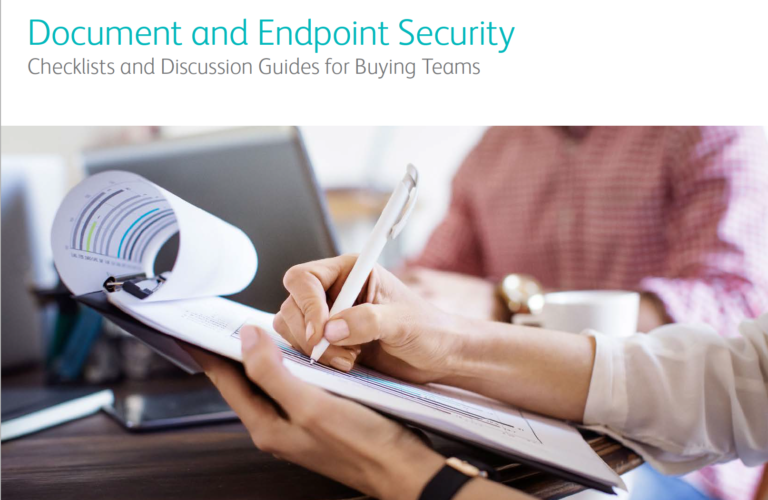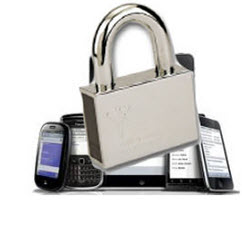By Denise McLaughlin, Worldwide Integrated Marketing, Xerox Enterprise Business Group
Security is a balance between people, technology, and process—you need all three working together to ensure you’ve got a handle on protecting what’s yours. Most people know the risk of a hacker is no longer reserved for government organizations with highly sensitive information or confined to computers, but we don’t want to think about the mobile device in our back pocket or the tablet where we’re downloading videos. And, too often we don’t think enough about a piece of paper lying on our desk, or something that really should be shredded before we throw it out.
Why do some people “get it” more, while others ignore it? Perhaps there is an Overwhelmed Factor at work and some of us are more vulnerable to it. A recent Harris Interactive survey commissioned by Xerox and McAfee (see infographic below) suggests that people in the western states are less concerned about security than east coasters. We all know the old stereotypes that west coasters are “chill,” and east coasters are uptight and more suspicious. Copernicus marketing research compared adults over 18 living on the eastern and western coasts of the country to each other, and discovered a variety of attitudinal and behavioral differences that do validate commonly-held perceptions. Those on the Atlantic, who favor gun permits more, might have more fears of the security unknown, while those along the Pacific, who say they are a bit happier overall, might be more willing to relax about the security threat since the same survey showed they’re more likely to do arts and crafts!
Whatever the personality drivers, perhaps there is a common human factor underlying our responses. I spoke to a friend recently about the growing underground network of hackers on the world stage, and what they are doing to our data. How they are fast becoming a whole new economy. I’ve been learning from security experts at McAfee that they can siphon off unprotected data, surf through your computer like a skateboarder, and it will be months before you even detect them, if you ever do. My friend shook her head, and practically blocked her ears. She said “I just don’t want to hear about it, because if I did I’d stop doing everything. I’d rather not know.” Yup, the Overwhelmed Factor. Attackers are hoping that we will continue to believe it’s so complicated we’re never going to detect what they are doing. That’s their game plan.
No matter what drives our response, it’s up to every individual to practice good security habits, and take a deep breath. We can be educated about security threats and take more control. If you’re an employer, a good way to enforce your security policy is to communicate it regularly, and make it more than a written document. If you’re a parent, explain why you’ve put blocks onto your system and teach kids about never downloading at random, and have a conversation about posting confidential information about themselves. Security practices are now a day-to-day fact of life. Do what you can to use the best supporting technology that automates security protection and policy enforcement whenever you can, and stay on top of what’s happening. Knowledge is power, so let’s use it.
———
Follow @XeroxOffice for the latest security updates during McAfee FOCUS12 Security Conference October 22-24, 2012.



